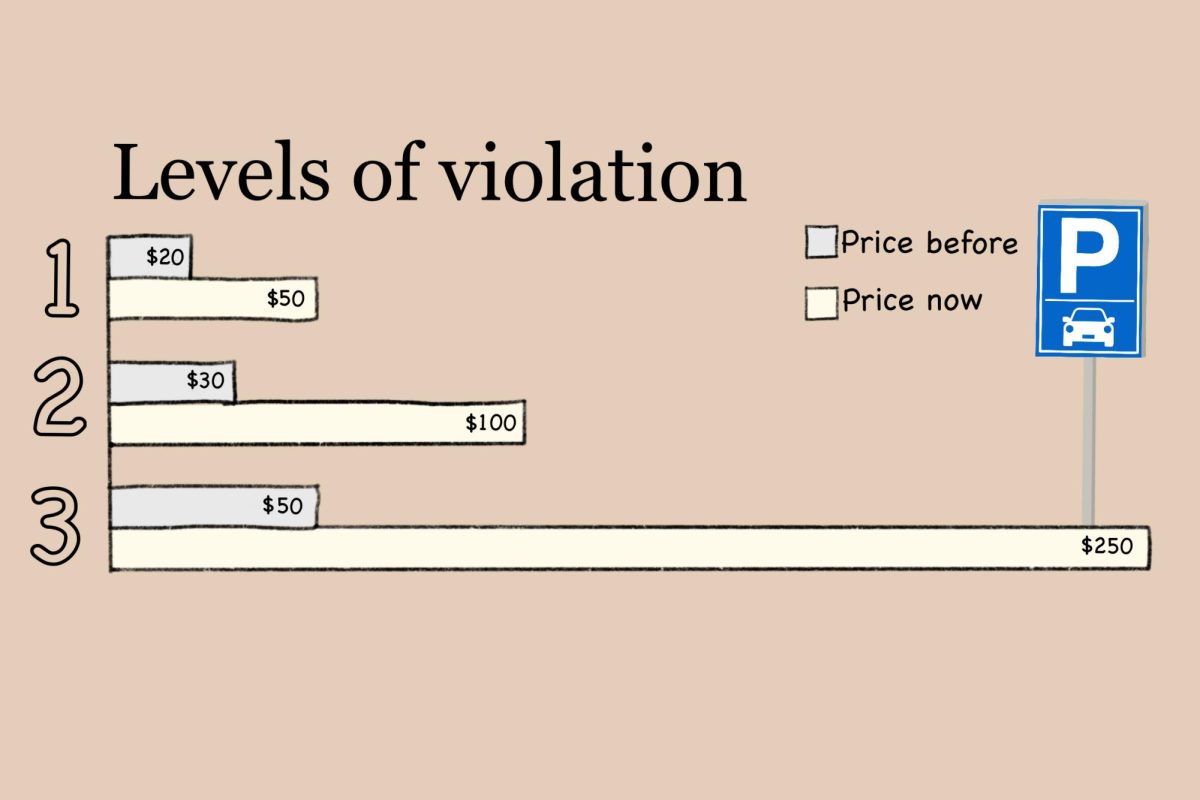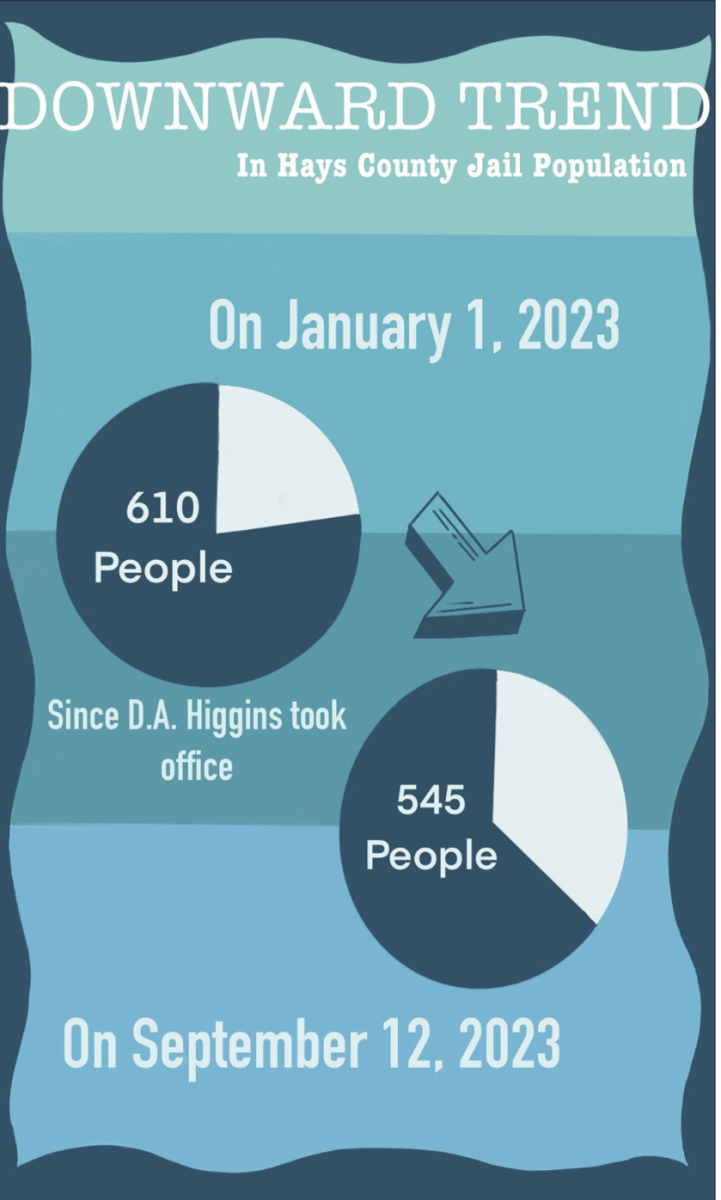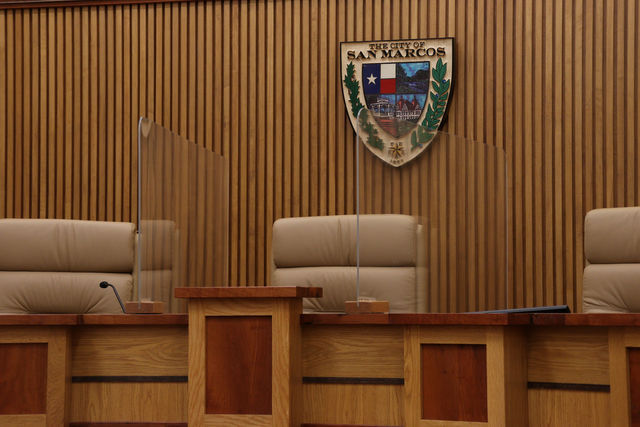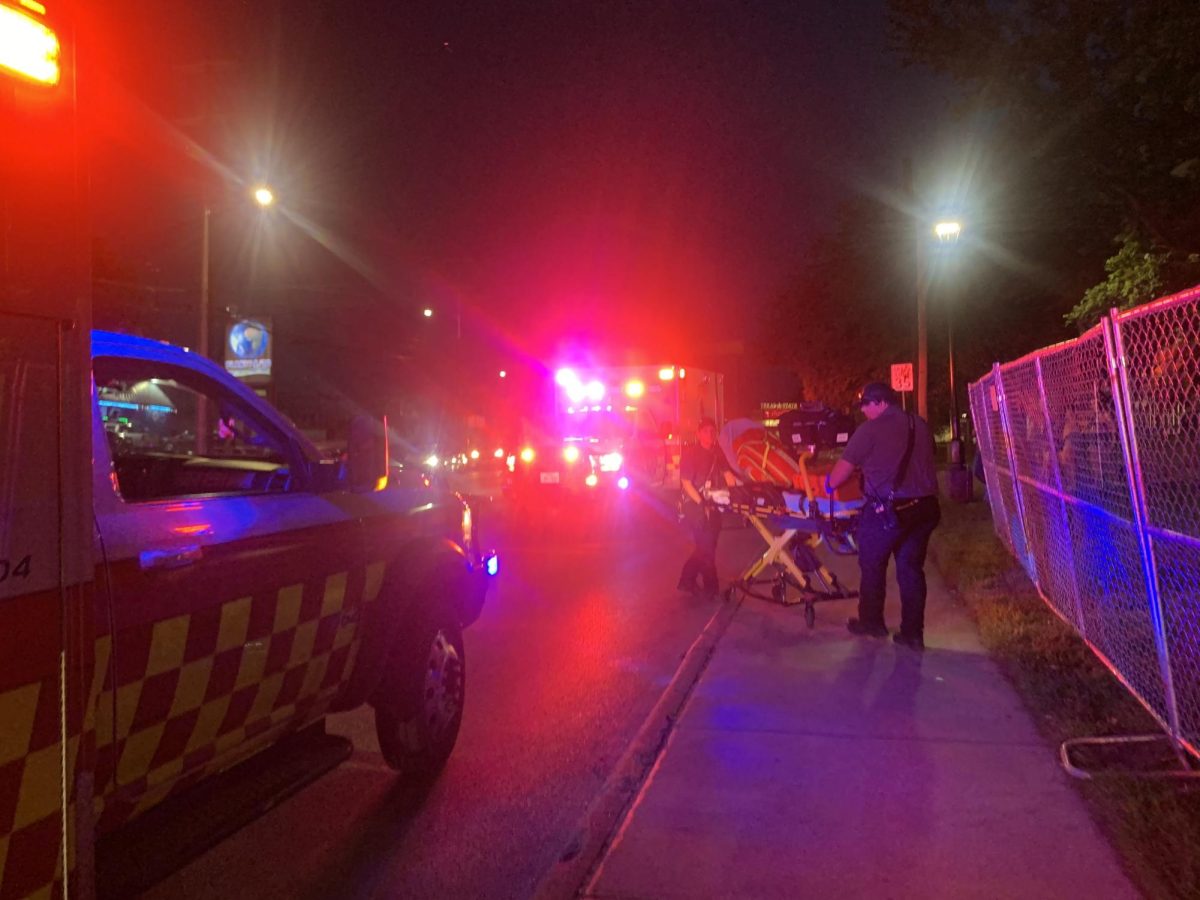Kelly Higgins, the Hays County Criminal District Attorney (D.A.), is set to finish dealing with large number of backlogged cases his office inherited from the previous district attorney, Wes Mau, by the end of 2023.
Higgins, who took office in January, inherited over 5,000 cases from his predecessor and has been implementing policies and expanding his office to process all the cases.
Higgins blames the backlog on previous holders of the office failing to change with the times, and deal with the changes necessitated by a rapidly growing population.
“[The Criminal District Attorney’s office] failed to grow up,” Higgins said. “The things that we’re doing should have been done 20 years ago.”
One of Higgins largest concerns is the backlog of cases. One has been there for over a year and a half without court proceedings started.
To prevent the attorneys in his office from being overwhelmed while working through the backlog, Higgins has brought on more prosecutors to handle cases.
“I have brought on 14 lawyers that weren’t here last year and the existing lawyers who have stayed have all taken that mission,” Higgins said. “That’s why we’ve been able to get [the backlog] down 4,000 cases in eight months.”
To decrease the number of cases and lower the pretrial population of the Hays County Jail, Higgins has delivered on his campaign promise to not prosecute simple possession of marijuana.
Cyrus Gray, a former inmate in the Hays County Jail, said when he was in jail, a large chunk of the inmates were in there for “simple possession cases.”
Another one of Higgins’ policies is to prioritize cases in the backlog that have victims over victimless crimes, such as recreational drug use or gambling.
“Victims come first and they always will,” Higgins said. “Those are the cases where people are hurting out in the world. We can’t fix the damage that people do, we can only address it in terms of trying to achieve justice.”
Gray criticized this policy, saying that it could lead to people with less serious charges waiting longer than necessary to have their cases heard.
“I don’t necessarily think that’s a bad thing, but I don’t 100% agree with it because you could be in jail for three plus years and your crime could not have a victim,” Gray said.
One criticism of the D.A’s office in the past was giving harsher punishments than necessary. While Higgins does agree some individuals may have been overcharged in the past, he also said choosing what exact level of charges to press can be a difficult decision for prosecutors.
“There’s some emotional content in what prosecutors do,” Higgins said. “Where violence is concerned I like to go [with the maximum punishment]. I can be sympathetic to some things, but violence isn’t one of them.”
Higgins seeks to avoid overcharging for nonviolent crimes in the future, but instead serve what he sees as fair justice, not just to victims of crimes, but the defendants as well.
“The overcharging came from a lack of vision about what the office is really about,” Higgins said. “This office is not about catching people and crushing them, it’s about trying to do what we can to keep the community safe.”
Mano Amiga, a political advocacy group in Hays County, is happy that Higgins is no longer prosecuting simple possession of marijuana. They also hope to see Higgins dismiss cases that have been in and out of the courts for years.
“I think he should prioritize cases that don’t belong on the docket,” Sam Benavides, the communications director for Mano Amiga, said. “There’s a lot of cases and people… whose cases have little to no compelling evidence.”
Higgins hopes that his office will have completely eliminated the number of backlogged cases by the end of this year.
“We’ve pulled 4,000 cases out of the past and put them into this flow, the courts are feeling it,” Higgins said. “But there’s a light at the end of the tunnel where that pace will smooth out. I think that’s within the next six months.”




















